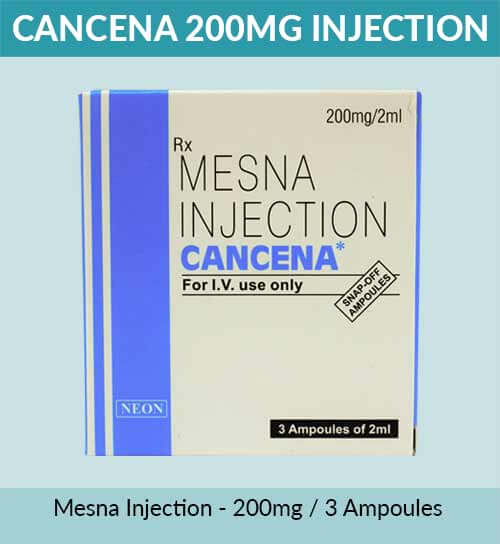Mesna
Mesna, otherwise known as sodium 2-mercaptoethanesulfonate, is a medication that is commonly used to prevent and treat bladder toxicity caused by chemotherapy drugs like ifosfamide and cyclophosphamide.
These drugs are usually used to treat various types of cancer but can cause inflammation and bleeding in the bladder, which can be extremely painful and potentially harmful. Mesna works by detoxifying the chemotherapy drugs in the bladder, which lowers the risk of bladder toxicity.
It is given intravenously (into a vein) or orally (by mouth) and is typically administered before and after chemotherapy. In addition to lowering the risk of bladder toxicity, Mesna also has other potential benefits.
It has been shown to improve the effectiveness of chemotherapy treatment, lower the risk of infection, and even lower the risk of some types of cancer. Like any medication, Mesna could cause side effects. The most frequent side effects include nausea, vomiting, diarrhea, and headache. In rare cases, Mesna can cause more severe side effects, such as allergic reactions and blood clots.
If you are undergoing chemotherapy treatment and are at risk of bladder toxicity, your doctor might recommend that you receive Mesna as part of your treatment plan. It is important to follow your doctor’s instructions carefully and to report any side effects or concerns to your healthcare provider immediately.
Overall, Mesna is an important medication that can help lower the risk of bladder toxicity caused by chemotherapy drugs, making cancer treatment safer and more effective for patients.

